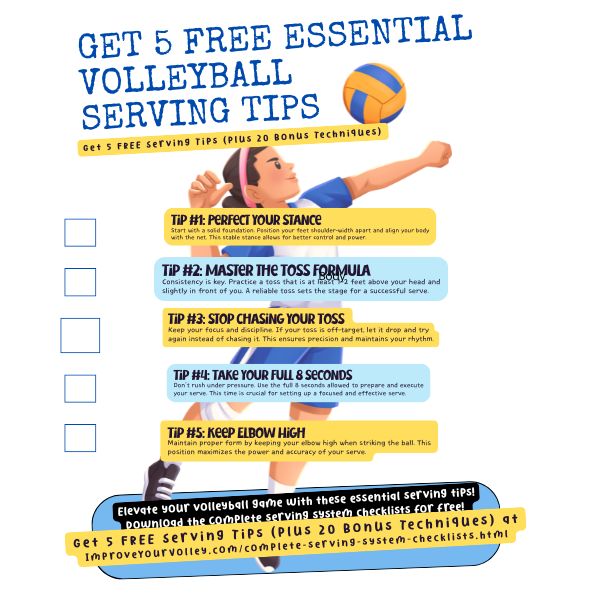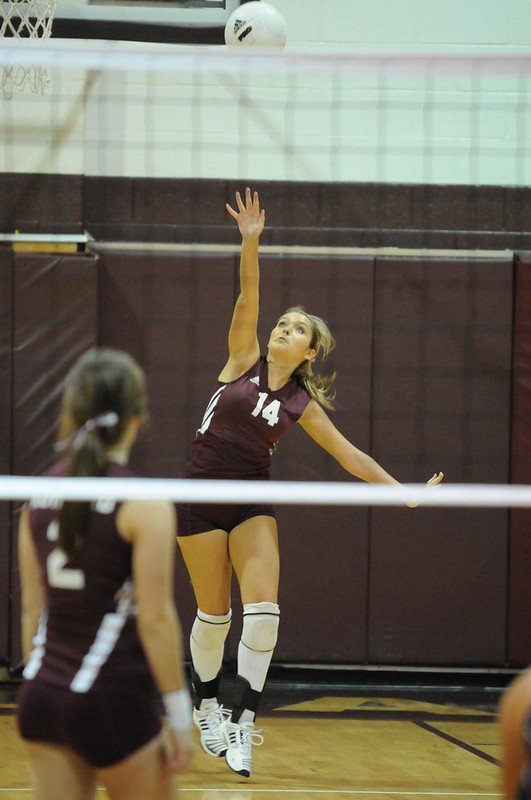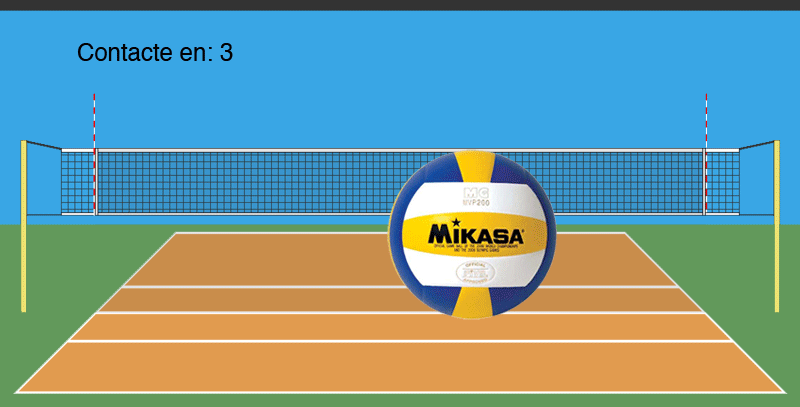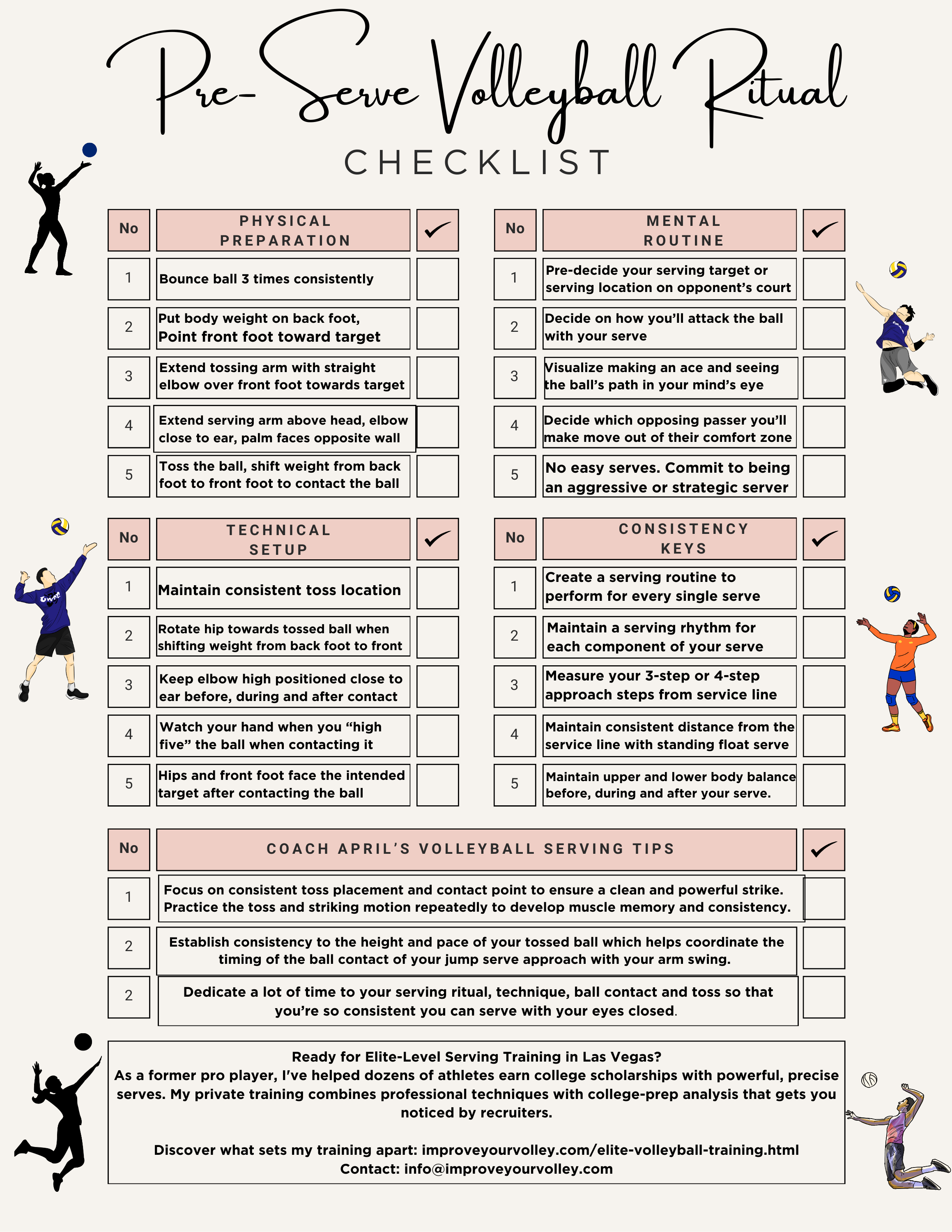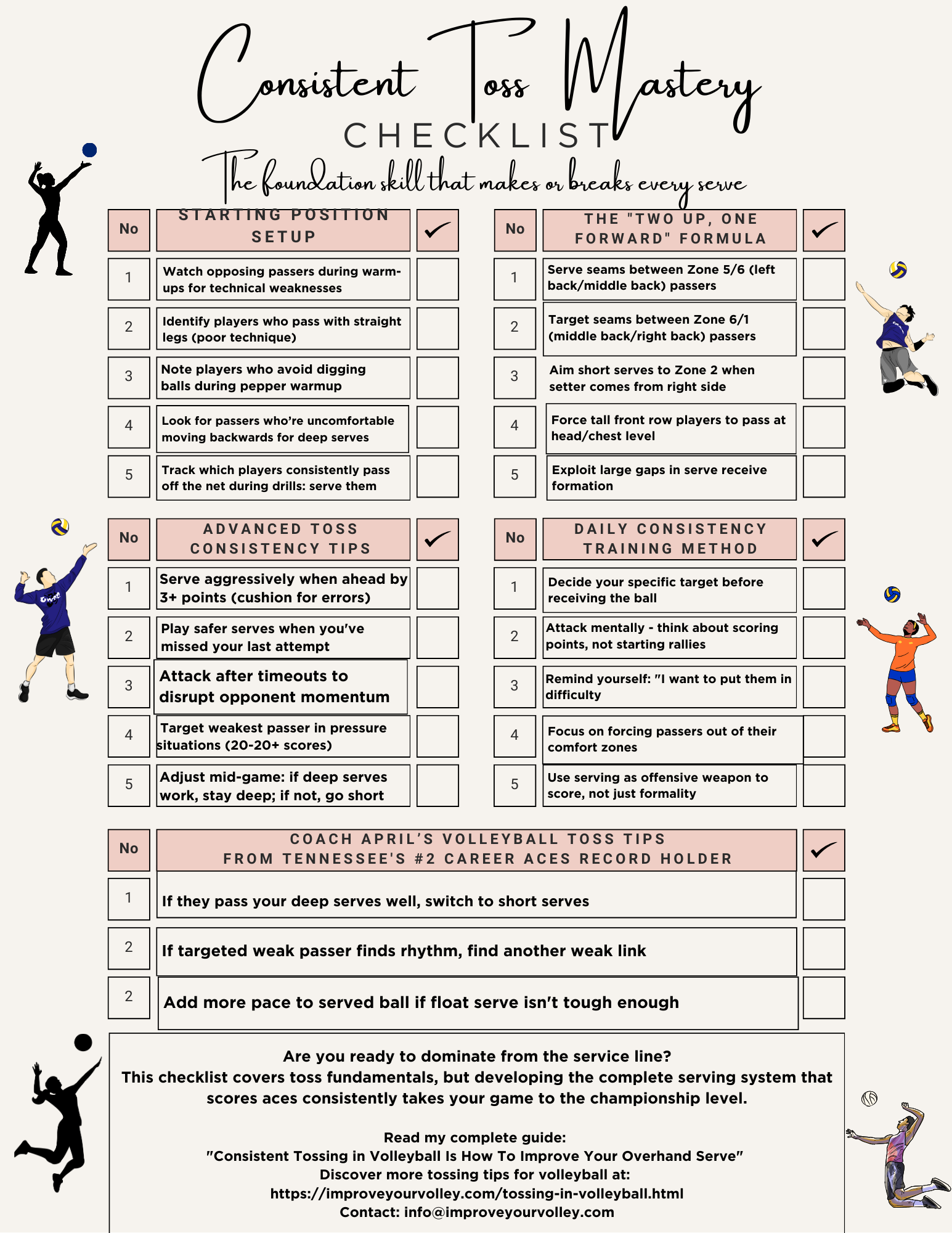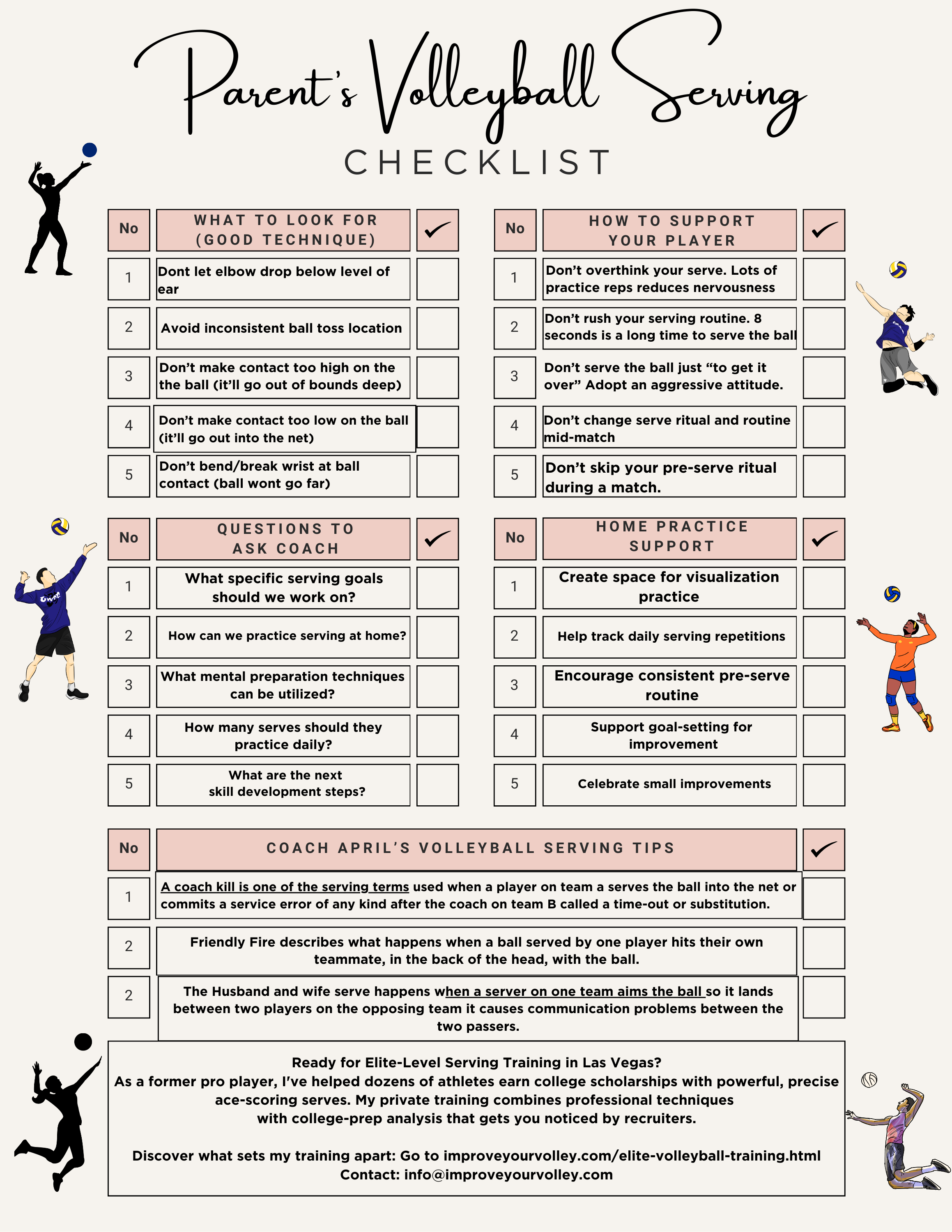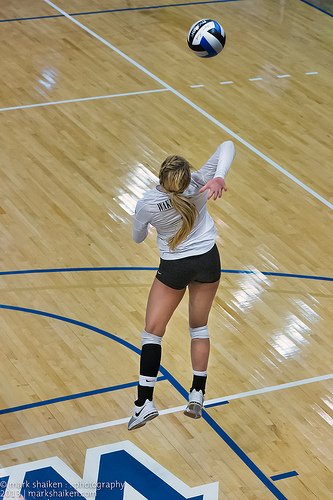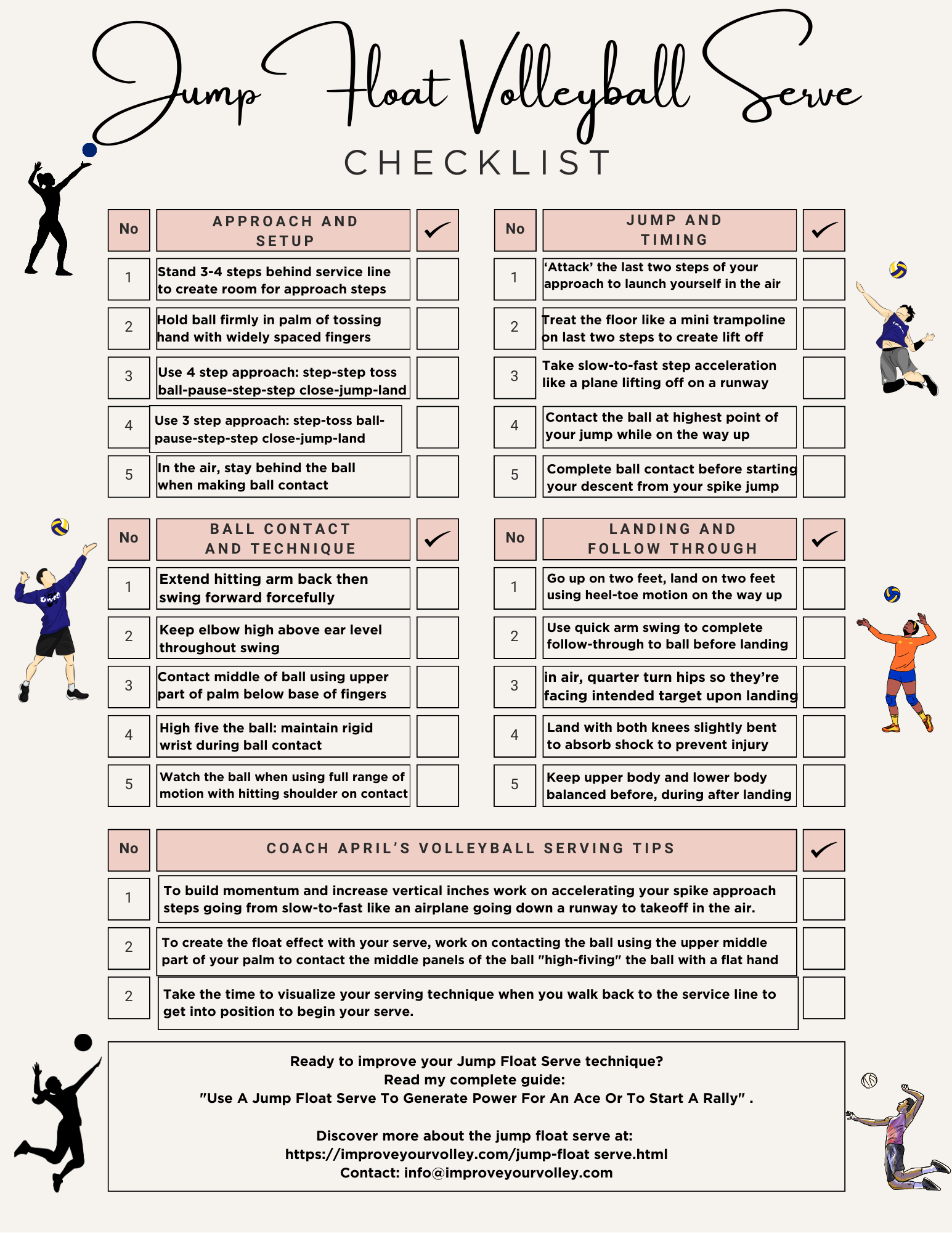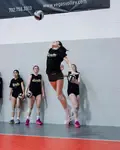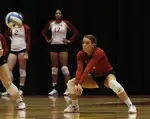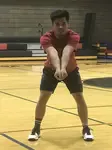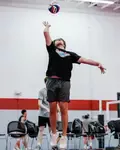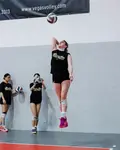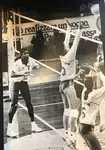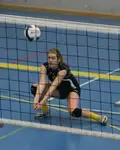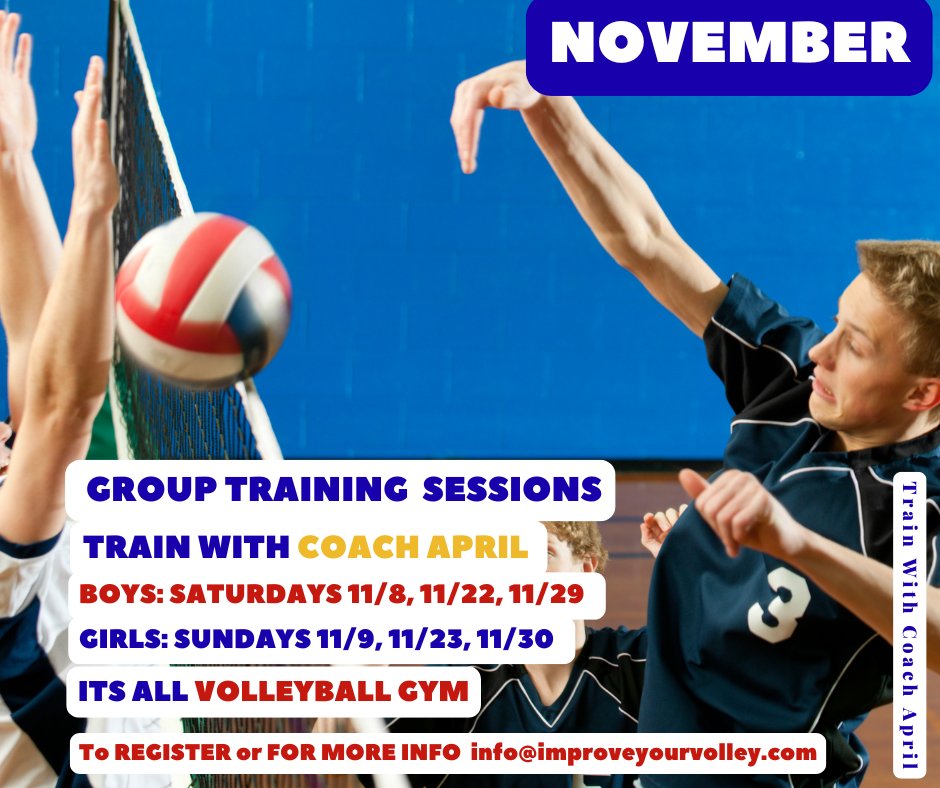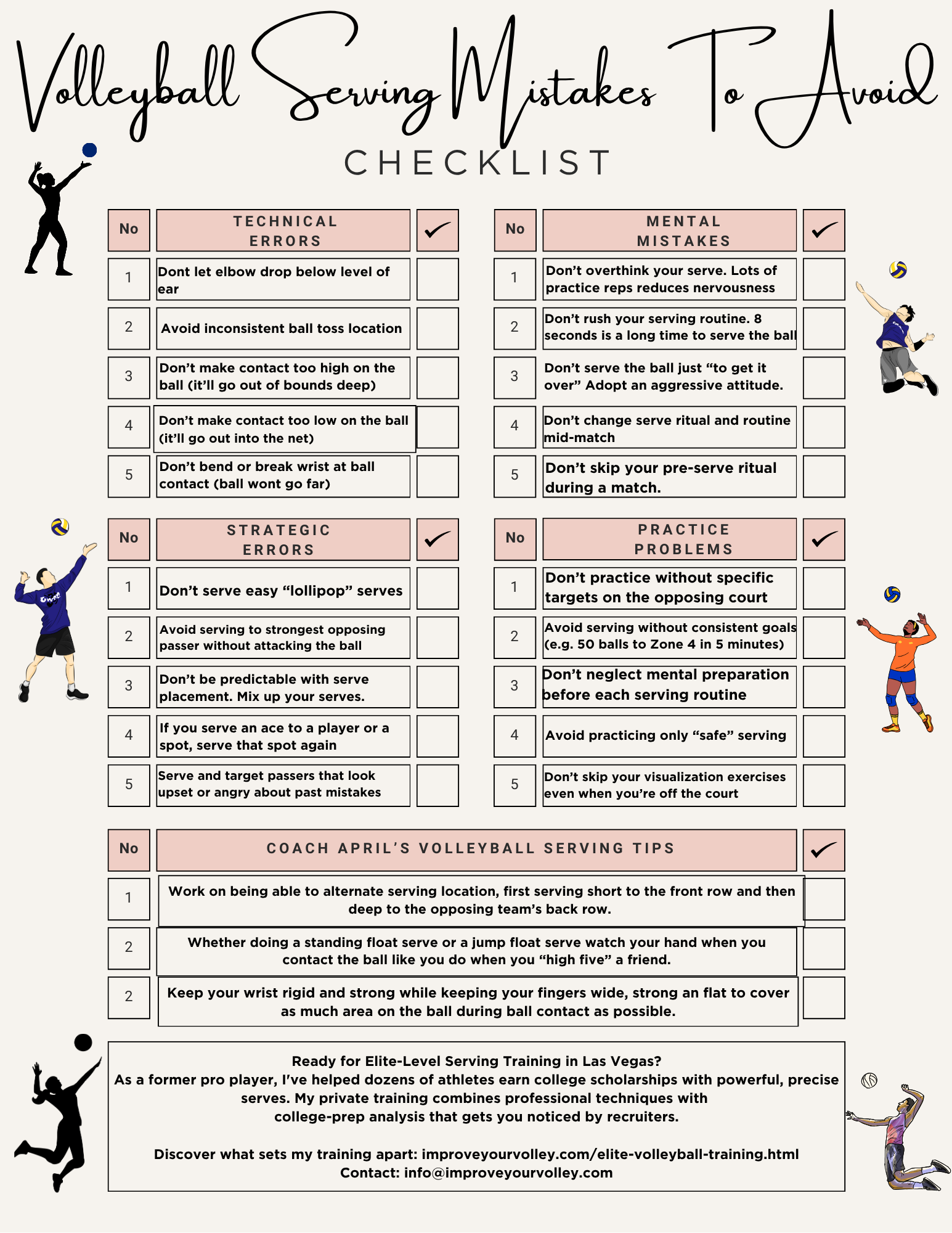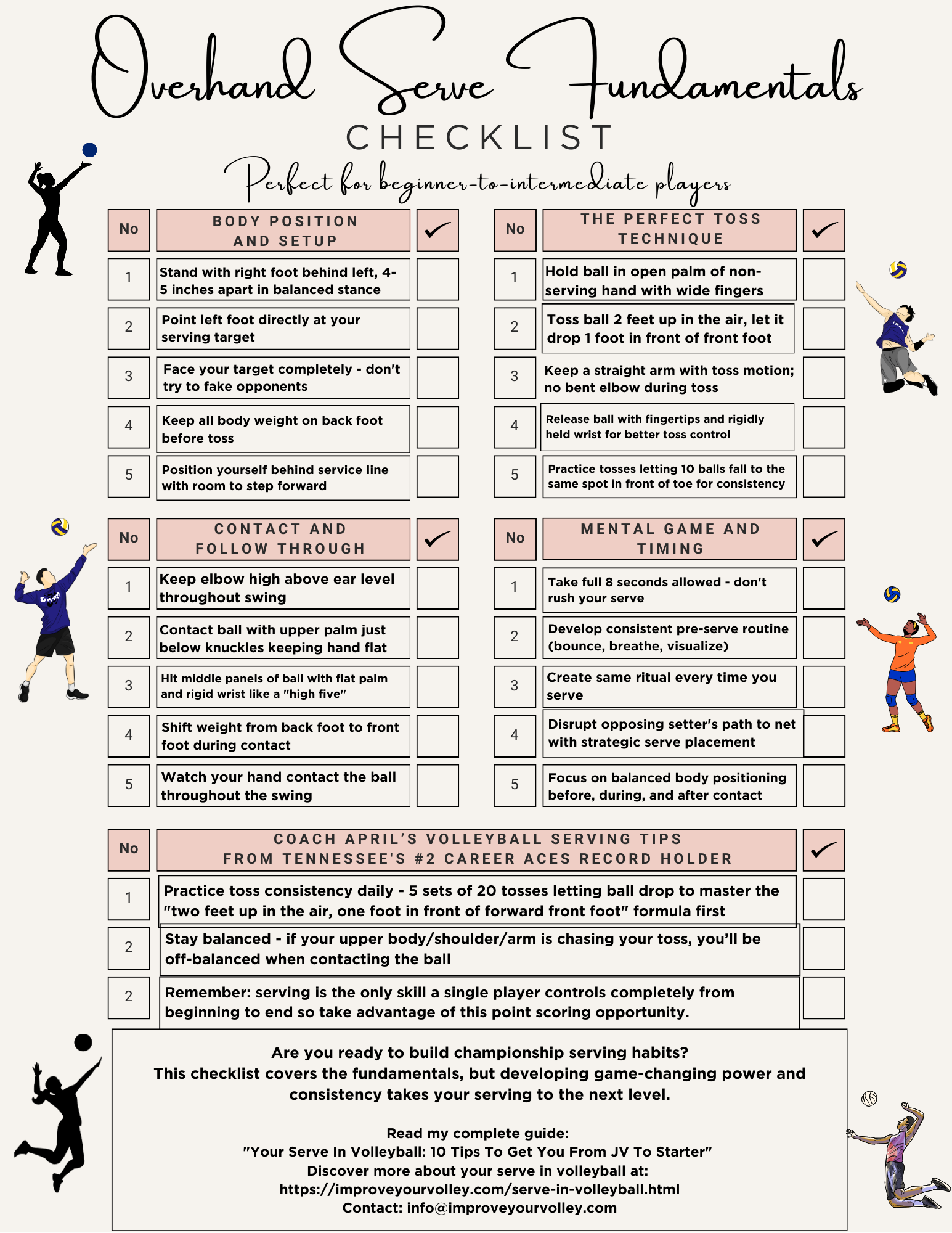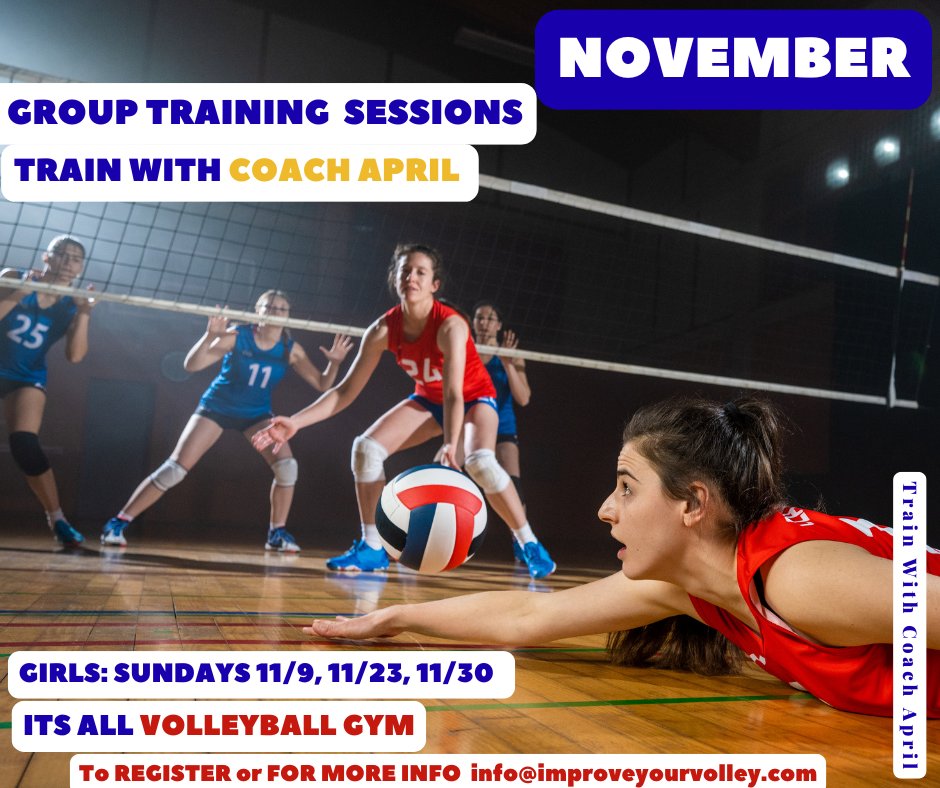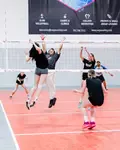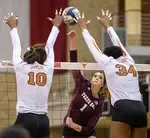- Improve Your Volleyball with Coach April
- Volleyball Plays
- What's an ace in volleyball?
The Power Of The Ace In Volleyball: Improve Your Team's Serving Game
An ace in volleyball is your way to victory! This guide offers strategies for volleyball coaches to develop powerful servers that dominate from the service line
It's the ultimate goal for any server, because it allows your team to score a point without having to rely on your teammates.
As a high school volleyball coach, whether you're leading the varsity, junior varsity, or freshman team, teaching your players how to serve effectively and score aces can be a game-changer.
To be clear, if anyone on the opposing team does make contact with the ball but can't return it over the net or keep it in play, it's still considered an ace.
The key is to make your serve as tough as possible so the other team cannot replay the ball and get it back over the net.
For The Freshman Coach
What is An Ace in Volleyball?
Start by emphasizing the importance of a proper toss, contact point on the ball and follow-through.
Encourage your players to practice serving regularly, both during team practices and on their own time.
Volleyball Ace Scoring Checklist - $7
|
This strategic checklist reveals the positioning secrets, target analysis, and mental approach that separate ace machines from players who just serve hard. |
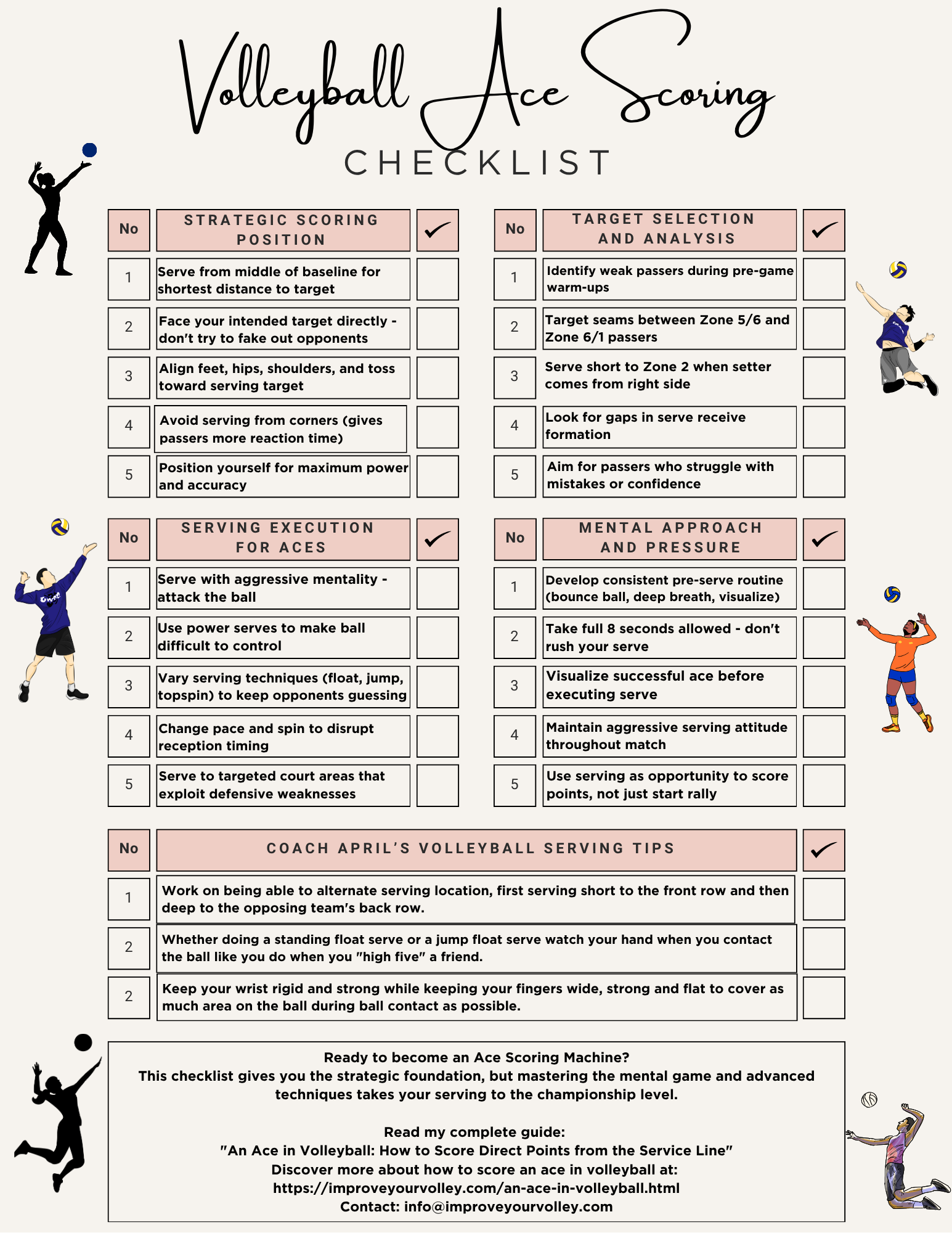 |
Inside, discover how to serve from optimal baseline positions that maximize power while minimizing opponent reaction time.
You'll learn to identify weak passers during warm-ups, target the seams between Zone 5/6 and Zone 6/1 that create passing confusion, and exploit gaps in serve receive formations that most players never notice.
Systematic volleyball checklist for scoring points directly from service line.
Covers strategic positioning for shortest distance advantages, target selection identifying weak passers, mental approach attacking weaknesses, and pressure-situation serving maintaining aggression when matches matter most.
For Junior Varsity Volleyball Coaches The Importance of Serving Technique
For junior varsity coaches, your players probably have a bit more playing experience and are ready to start learning more advanced serving techniques.
Work on drills that focus on serving to specific zones on the court, such as deep corners or the space between players (known as "the seam").
For Varsity Volleyball Coaches What Does An Ace In Volleyball Mean To Your Team
Varsity coaches, your players are probably already proficient in basic serving techniques and may even have experience with jump serves.
Your goal should be to improve and refine their skills and help them develop a strategic approach to serving.
Encourage them to study the opposing team's passers and identify weaknesses to exploit.
Teach them how to vary the speed, placement, and trajectory of their serves to keep the other team guessing.
Serving Volleyball Drills For Varsity/College Players:
Full Court Serve Receive With Two Passers and Two Float/Jump Servers
As your players improve, increase the difficulty of your drills by adding pressure situations, such as serving after running a sprint or having to score a certain number of points in a row.
Volleyball Ace Scoring
Practice Drills
Players are given a specific amount of time to serve a pre-determined number of balls to the target area formed by the chairs. hitting the middle of the chairs is rewarded more than just hitting the chairs in this case but coaches can come up with their own rules in irder to make this a tougher or easier drill.
The Serving Ladder Volleyball Drill
One effective drill for all levels is the "serving ladder."
Set up cones or markers at various distances from the net, each representing a different point value.
Players must serve to these zones, starting with the closest and moving back after successfully hitting each one.
This drill helps players develop accuracy and control while also adding a competitive element.
Players are given a specific amount of time to serve a pre-determined number of balls to the target area formed by the chairs. hitting the middle of the chairs is rewarded more than just hitting the chairs in this case but coaches can come up with their own rules in irder to make this a tougher or easier drill.
What's The Mental Preparation Needed To Score An Ace In Volleyball?
Another important aspect of serving is the mental preparation needed before during and after the serve.
Teach your players to develop a pre-serve routine, which might include
- taking a deep breath
- bouncing the ball a specific amount of times
- measuring your steps from the service line
- visualizing the serve
- repeating a positive affirmation
Click to Download Your Pre Serving Ritual Mastery Checklist pdf:
🎯Volleyball Pre Serving Ritual Guide - $7
Transform Your Serve from Weak to Weapon
Stop letting pressure situations destroy your serves?
You'll Get
- ✓3-bounce physical preparation setup system
- ✓Mental routine for target pre-selection and visualization
- ✓Technical execution checklist for automatic consistency
- ✓Proven tips for bulletproof toss consistency
- ✓Pressure-proof strategies that eliminate serving errors
Click to Download Your Consistent Toss Mastery Checklist pdf:
🎯Consistent Toss Mastery Guide - $7
Are inconsistent tosses sabotaging your serves and forcing you to chase the ball? Why fight your toss when you could master the foundation of every great serve?
Click to Download Your Parent's Volleyball Serving Guide Help Your Player Develop Championship Serves (Even If You've Never Played) Checklist pdf:
🎯Parent's Volleyball Serving Guide Help Your Player Develop Championship Serves Guide - $7
You'll Get:
✓Learn exactly what to look for in your player's serving form so you can provide meaningful feedback.
✓Discover how to provide encouragement that actually improves performance and mental toughness.
✓Know exactly what to ask coaches to show you're engaged and help your player develop properly.
✓Simple, effective drills that don't require a gym or expensive equipment.
✓Understand the language coaches use so you can better support your player's development.
✓Help your player develop the psychological aspects of serving that many coaches don't have time to address.
This routine can help them stay focused and calm under pressure, increasing their chances of executing a successful serve.
Keeping Stats on Aces Scored During A Match
As a coach, it's also crucial to track your team's serving stats during matches. Keep a record of each player's serving percentage, aces, and errors.
Use this data to identify areas for improvement and to celebrate individual and team successes.
Encourage your players to set personal goals related to their serving performance
How To Prepare For Scoring Aces During Game Situations
When it comes to game situations, emphasize the importance of serving aggressively but intelligently.
Teach your players to recognize when to take risks and when to prioritize consistency.
Players serve to Zone 2 then run and shag their ball and repeat the drill from the opposing court.
Coaches can designate a certain amount of time for the drill duration or they can decide on a specific number of serves that need to be tough an inbounds before the drill is done.
Freshmen Coaches How To Prepare For Ace Scoring Matches
For freshman coaches, focus on helping your players build confidence in their serving abilities.
Celebrate every success, no matter how small, and provide constructive feedback when errors occur.
Encourage them to cheer each other on and create a supportive team environment.
Junior Varsity Coaches How To Prep Your Players To Score More Aces
Encourage them to experiment with different techniques and find what works best for them.
For Varsity Coaches
Varsity coaches, your players should be well-versed in various serving strategies and techniques.
Work with them to develop a serving game plan for each match, based on the strengths and weaknesses of the opposing team and the strengths and weaknesses of each server.
Some servers will have a better short serve than others or some can serve the line better than others so plan accordingly.
Encourage them to take calculated risks and to trust their skills in high-pressure situations.
Varsity Serving Concepts
One advanced serving technique to teach your varsity players is the jump spin serve.
This serve involves tossing the ball high, taking a dynamic approach, and hitting the ball with topspin as you jump.
While more challenging to execute consistently, the jump spin serve can be a powerful weapon when you can control all aspects of this skill.
In my annual Breakfast Club for College Players summer class which I have been doing for college players home for the summer and need a place where they can get college paced volleyball drills done so they can report back to their college coach what they accomplished.
Many college players are required to send video of their summer workouts back to their college coaches so I provide a great environment where they can get that done.
College players are working on their jump float serve technique.
To help your players improve their jump spin serve, break down the technique into smaller components and practice each one separately.
Another important concept to teach your varsity players is the idea of serving to the "seams" between players. By targeting these spaces, you can create confusion and hesitation among the opposing team's passers, increasing the likelihood of an ace or a poor pass.
Create A Team Culture That Embraces Aggressive Serving
Encourage your players to take smart risks and to view serving as an opportunity to score points, rather than just a way to start the rally.
As your players become more skilled and confident in their serving abilities, introduce more game-like serving drills into your practices.
Can Visualization Help Your Team Score More Aces? The Importance of Mental Training
Another way to help your players improve their serving is to encourage them to practice visualization techniques.
Have them close their eyes and imagine themselves executing the perfect serve, focusing on the feel of the ball, the sound of the contact, and the trajectory of the serve.
This mental practice can help build confidence and improve performance.
Jump Float Volleyball Serve Checklist - $7
|
This step-by-step checklist reveals the approach timing, contact techniques, and landing mechanics that separate struggling servers from jump float specialists. |
Inside, discover how to execute proper 3-step and 4-step approaches that build momentum like an airplane on takeoff, master the slow-to-fast acceleration that maximizes your vertical jump, and perfect the "high five" ball contact that creates the devastating float effect opponents struggle to pass.
Advanced technique volleyball checklist with 4-step approach breakdown, "airplane takeoff" timing, ball contact precision creating unpredictable flight, and landing mechanics preventing injury.
Master the serve that dominates at higher competitive levels with body-part-specific positioning only elite experience can teach.
Finally, as a coach, it's important to lead by example when it comes to serving.
Create a team culture that celebrates taking risks and learning from mistakes, rather than one that punishes errors.
Whether you're coaching a freshman, junior varsity, or varsity team, focus on teaching proper technique, incorporating serving drills into your practices, and fostering a team culture that values aggressive, strategic serving.
By doing so, you'll help your players become more confident, effective servers and increase your team's chances of success on the court.
Do You Follow Me on Pinterest?
Follow me on Pinterest Volleybragswag to improve your game even faster!
I share alot of individual, partner and easy-to-do volleyball serving drills we do in class with my followers.
Many of these volleyball practice drills you can do at home by yourself or try at your next practice with your teammates.
If you're a B team or JV player trying to make varsity next year...your goal should be to complete 1000 reps a day of at least three of the basic skills on your own...volleyball passing, serving and setting should be at the top of the list.
High School Varsity Volleyball Playing:
Where Do You Go Now?
Okay here's where you need to go now! There are three options:
- Learn more about Smart Volleyball Playing by clicking the Related Links below. .
- Follow the suggested reading on our Sitemap page Learning How To Play (Sitemap)
If your athlete struggles with consistent serve receive, gets subbed out, or is overlooked for playing time—this is the fix you’ve been looking for.

Struggling with passing consistency?
I help talented passers tired of getting pulled from games because of inconsistent serve receive skills BUILD passing confidence without expensive private lessons using the same 3-step system that's helped dozens of my athletes get recruited.
Download my eBook for $17.99 and start building the passing confidence that keeps you on the court—and gets you seen by college coaches.
From Lady Vol to Legend: Coach April Produces Powerful Passionate Players...is that you?
What Are You Looking For?
Click to Download Your Pre Serving Ritual Mastery Checklist pdf:
🎯Volleyball Pre Serving Ritual Guide -
Players! Learn How To Transform Your Serve from Weak to Weapon
Click to Download Your Parent's Volleyball Serving Checklist pdf
🎯Parent's Volleyball Serving Checklist Guide
Parents! Help Your Player Develop Championship Serves (Even If You've Never Played)

Hi there!
Thanks for stopping by. Hope you learned something today that will help you reach your volleyball goals.
Be sure to subscribe to my email newsletter so you can learn more each week!
Stay strong! Stay motivated!
-Coach April

SUSCRIBE to my email newsletter below!
 Click to learn more about the weekly volleyball classes and clinics or email info@imrpoveyourvolley.com for information
Click to learn more about the weekly volleyball classes and clinics or email info@imrpoveyourvolley.com for informationCongratulations to my seven Boys-18s Vegas Volley club players who played in two state championship finals yesterday, the 3A and 5A State champinship finals at Sunrise Mountain High School.
TOURNAMENT CHAMPIONS!
A-1 Vegas Volley VBC
In It To Win It Tournament
May 2 - 4, 2025 Tournament
Gold Medalists
18s Premier Division
Vegas Volleyball's Unsung Heroes: Celebrating Moms with Peace Love Volleyball Shirts
Ready to energize your volleyball mom journey?
Subscribe to my 'Producing Powerful Passionate Peaceful Players' email list above on ImproveYourVolley.com.
You'll receive energy-boosting tips, exclusive insights from me, Coach April Chapple on maintaining momentum in volleyball.
Let's power up the Vegas volleyball scene together!
Recent Articles
-
Tips For Short Volleyball Players: Top Strategies to Beat Big Blockers
Jan 21, 26 04:56 PM
You don't need to be 6 feet tall to dominate at the net. Learn my tips for short volleyball players to use to outsmart bigger blockers and score more points. -
Essential Skills for a Hitter in Volleyball: Tips For Short Attackers
Jan 11, 26 07:05 AM
A short hitter in volleyball can aim the ball for the seam of the block to score since its harder for defenders to block at the net or dig up in the back row. -
10 Hitting Tactics Short Volleyball Players Use Against Big Blockers
Jan 11, 26 06:57 AM
These are 10 hitting tactics that short volleyball players, can rely on hit against and sideout and score against teams with big blockers in the front row.
